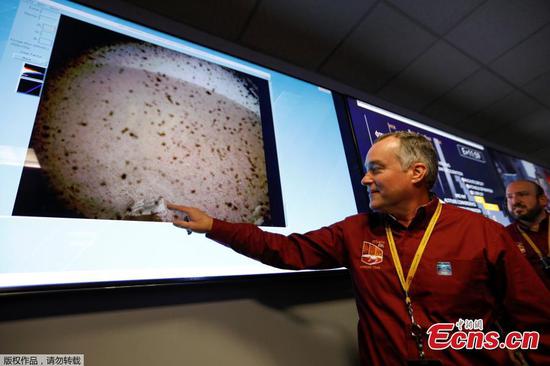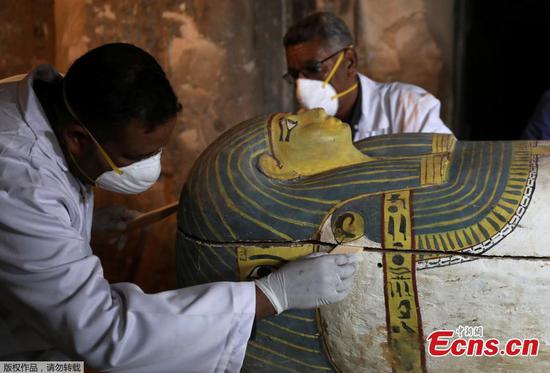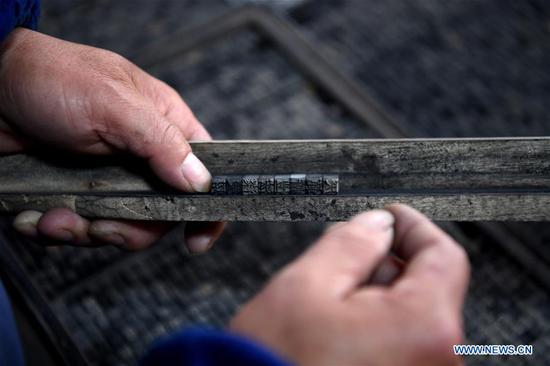Stricter supervision of gene-editing tests demanded to fix loopholes
The world's first twins born in China after their genes were reportedly edited have clearly violated the country's regulation, a senior official said Tuesday amid growing criticism over the ethicality of the experiment.
Xu Nanping, vice minister of science and technology, said a 2003 regulation permits gene-editing experiments on embryos which are only allowed to remain viable for 14 days, China Central Television reported Tuesday night. The ministry will process the case according to law, Xu said.
Xu made the remarks after He Jiankui, an associate professor from the Southern University of Science and Technology (SUST), claimed on Monday that his team had successfully altered the CCR5 gene of twins born earlier this month to make them resistant to HIV, the virus that causes AIDS.
The news triggered a storm of criticism at home and abroad, as scientists and the public questioned the ethics, necessity and safety of conducting such an experiment.
No individual or institutes should conduct any clinical application of embryo gene editing if they are not certain of the theory or techniques, when risks are uncontainable and when regulations clearly ban such experiments, said a statement released by China's Academy of Sciences on Tuesday.
The academy said it is willing to cooperate with any investigation into the experiment.
China's National Health Commission on Monday demanded local authorities fully investigate the experiment.
An overall investigation into the experiment's impact on China's biotechnology development will be conducted by China's Science and Technology Ministry, Southern Weekend reported, citing an insider.
He Jiankui is scheduled to present results of his experiment on Wednesday at the Second International Genome Editing Summit in Hong Kong.
Volunteers at the Hong Kong event told the Global Times on Tuesday that He's experiment is under the spotlight at the summit and local university students are rushing to the site to see if they can attend He's presentations.
The volunteers said He's presentation has been closed to public access.
Disputed funding sources
Many internet users have also questioned He's intention, saying his goal is to make a fortune from the experiment and questioned his funding source.
According to the website of Chinese Clinical Trial Registry, an information sharing platform in China, the gene editing experiment led by He is being financially supported by the Shenzhen Science and Technology Innovation Free Exploration Project.
The project is under the supervision of the Shenzhen technology and innovation committee. The committee on Monday night denied that it had supported any gene-editing experiment or any other experiments headed by He.
The website of He's lab indicated its funding source for the gene editing experiment is SUST, but the university issued a statement Monday saying they have never been notified of such an experiment.
Doubts over He's financial sources and his intention to carry out gene editing experiments intensified Tuesday after he was reported to be a shareholder of eight companies that have a total registered capital of at least 150 million yuan ($21.6 million), thepaper.cn reported on Tuesday.
Fix loophole
On Tuesday, 140 Chinese AIDS researchers released a statement that slammed He's experiment for "ignoring the scientific and moral bottom line."
The researchers said they firmly opposed any modification or editing of fertilized embryos and eggs of a healthy human before the safety and effectiveness of such a procedure can be guaranteed.
At the same time, they called on related authorities to strictly ban further implementation of human body tests and establish an effective management and oversight system.
"The current legal system is still weak in supervising human gene experiments in China," Liu Changqiu, a health law expert and research fellow at the Shanghai Academy of Social Sciences, told the Global Times on Tuesday.
A 2016 regulation released by China's top health authority stipulates that medical institutes should establish an ethical review committee to review and supervise human experiments.
However, according to Liu, not every committee implements the regulations as required and may not properly supervise all such experiments.
The ethics review system relies too heavily on the self-discipline of its members, Liu said, calling for strict and detailed laws to set a bottom line for such experiments.
"Sometimes the committee will ask the applicants to provide more materials, but usually they will not reject an application unless they find major ethical problems," Liu said.


















































